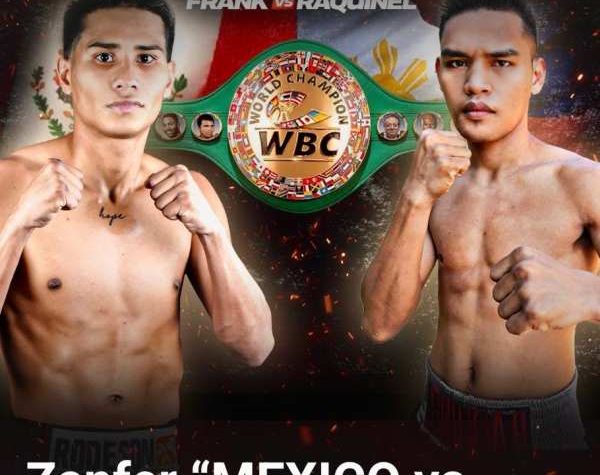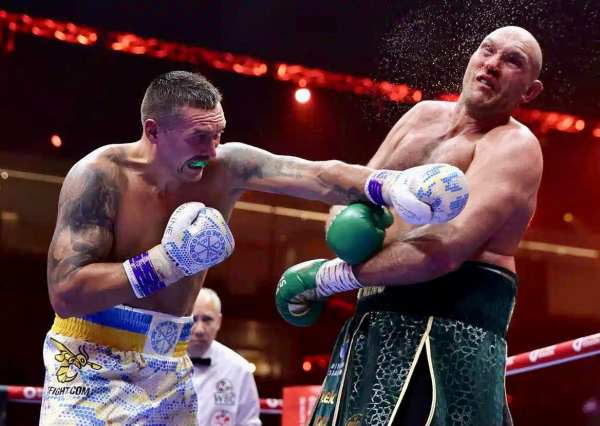
The aftermath of Saturday’s UFC Belem show has featured more talk about the non-stoppage of the Valentina Shevchenko vs. Priscila Cachoeira fight than any performances by fighters.
The fight was as one-sided as any UFC fight ever that went as long as it did. The first round was so one-sided that it could have been judged a 10-7, even if all three judges gave it a 10-8.
While UFC president Dana White often overreacts, you haven’t seen many people arguing against his point that referee Mario Yamasaki should never step foot in the Octagon again. Others have noted that it was a failure from many sides, and that her Cachoeira’s corner should have stopped the fight when it was clear Yamasaki wasn’t going to.
The problem with that reasoning is the culture within the sport. A few weeks ago, when I made the argument during a fight where a fighter was taking an excessive beating that the corner should have thrown in the towel, another fighter noted to me immediately that if he was in that situation and his corner did that, he’d never allow them to corner him again.
Even with the beating Cachoeira took, including injuries that the viewing audience didn’t know about it — a first-round torn ACL and meniscus — she noted that her team knows her limits.
”Those who know me and are around me on my day-to-day, know how I could have performed,” she wrote on Instagram. “And even having injured my knee early in the fight, I went until the end because I don’t know quitting. I will need surgery on my ACL and meniscus.
”Throwing the towel, never,” she said.
Therein lies a big problem, because at times fighters have suffered beatings from fights that have gone on too long and have greatly impacted their subsequent careers. Similar criticism was lobbed in 2013 when Junior dos Santos took a prolonged beating in his third title fight with Cain Velasquez. Dos Santos refused to give up, but by the time the contest was finally stopped in the fifth round, “JDS” had taken an almost inhuman beating.
That ultimately kept him out of action for 14 months. While dos Santos did win a close decision win over Stipe Miocic in his next fight back, he was never the same fighter that he was prior to the final Velasquez fight.
We can debate the point until we’re blue in the face, but culturally in this sport, the corner virtually never throws in the towel. Only in the most dire circumstances do they stop the fighter coming out for a round even if they’ve suffered a bad beating in the prior round. These decisions are ultimately in the hands of the referee, or if there is a bad injury or cut, the commission doctors.
Yamasaki argued that Cachoeira would move when asked to defend herself, meaning she was still fighting. The bad part of a fight like this is that Shevchenko was landing big shots on the ground, but never with enough force that Cachoeira would go out. It wasn’t the rapid nonstop punches not being defended that normally would lead to a stoppage. It was more a one-sided fight with long flurries, a few of which could have been enough for Yamasaki to step in, but it did appear the beating would stop momentarily and then start back up again. This led to an ugly prolonged beating, the kind that is bad for a career and potentially bad for later life.
In the end, one of the key jobs of a referee is to protect the fighter from their own guts and spirit. Fighters are taught to fight to their last ounce and never to mentally break, and Cachoeira was clearly doing both. But she was stuck in bad positions. While she was still attempting to fight until the second-round choke that sent her home, she wasn’t effective and wasn’t able to defend herself.
The fight in many ways took away from Shevchenko’s dominant win. Shevchenko was already the favorite to wind up as the champion in the newly-created women’s flyweight division. But in the end, the focus was less on her strong performance and more on the fight going several minutes longer than it had any right to.
Let’s look at how Fortunes Changed for Five stars of UFC Belem.
LYOTO MACHIDA — Machida (23-8), a few months shy of his 40th birthday, won a split decision over Eryk Anders in the night’s main event.
The previously unbeaten Anders (10-1) got what he asked for, having specifically called out Machida for this date after his Dec. 9 win over Markus Perez in Fresno, Calif.
It was a surprising callout, but one the UFC matchmakers obliged. Machida is an elusive fighter who gives most of his opponents a lot of trouble, especially aggressive opponents. Machida has been a big name in the sport for years and one that put Anders into a main event and could have made him viewed as a major player in the middleweight division.
Even though Machida had only won one fight in nearly four years, and he is not the fighter he once was, his style is still very difficult to figure out.
It was a hard fight to judge. Machida out-landed Anders in every round, most by a significant margin, but Anders was the aggressor and landed the harder punches and pressed the action. Media scores at MMADecisions.com were 74 percent for Anders.
For Machida, a good next opponent would be Kelvin Gastelum (14-3). For Machida it’s tough because he’s fought of the top contenders, but for a guy like Paulo Costa (11-0) on the rise, which theoretically would be a good opponent, Machida’s style makes a guy who would look impressive not look so great, like Anders,even ifi, has loostuase , who won the night’s most exciting fight over Anthony Smith with an early second-round stoppage.
ERYK ANDERS — The loss, particularly in a fight he appeared to win close, is significant. This was the test to see what level Anders is at, as he was unbeaten but had never faced anyone of Machida’s level. If the judging went his way, UFC Belem would’ve been considered a huge win for the middleweight prospect as opposed to a disputed loss.
A good next opponent for Anders would be Elias Theodorou (14-2), an aggressive fighter who will give Anders more of a test to find out what level Anders really is at.
VALENTINA SHEVCHENKO — Shevchenko (15-3) had proven to be one of the top contenders at bantamweight with wins over Holly Holm and Julianna Pena. But she had lost twice to champion Amanda Nunes, battling Nunes to competitive decisions both times.
At flyweight, she’s clearly the favorite to capture the title currently held by Nicco Montano (4-2). Montano was the surprise winner of a 16-women tournament on The Ultimate Fighter and became the first UFC women’s flyweight champion. Right now she is waiting for a broken foot to heal before her first title defense can be put together.
ALAN PATRICK — Patrick (15-1) had a dominant performance over Damir Hadzovic (11-4) highlighted by nine takedowns.
At lightweight, two opponents that would make sense for Patrick next are Islam Makhachev (15-1) or Nik Lentz (28-8-2). Patrick has a strong record on paper, but at age 34, needs to make his move now against quality competition.
POLYANA VIANA — A former world champion in jiu-jitsu, Viana (10-1) made her UFC debut an entertaining one, going from one submission to another before securing the choke on Maia Stevenson (6-5) in the first round. Viana was a huge fan favorite in Brazil and was impressive in the one-round fight.
A good next opponent for her would be Cynthia Calvillo (6-1) or Alexa Grasso (10-1). In either case, a win over either of them gets Viana into a position to face the top-ranked fighters in the division.





More News
Quiñonero fights Verdadero in Resbak 2
Resbak 2 at Malungon, Sarangani Province on July 12
Garde stops Baliente in 1st round in “Resbak”